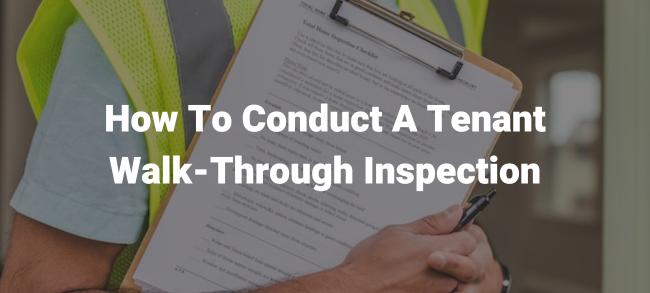Top 5 Questions to Ask Potential Tampa Tenants and What Not to Ask
Every landlord wants awesome tenants. These are the tenants who keep the place clean, pay rent, report maintenance issues, and don’t complain often. However, as most landlords in Tampa can attest, getting such a tenant isn’t an easy task.
Getting a good-quality renter requires a lot of homework. And, most of this homework involves screening each and every tenant to determine their suitability to rent your property.
Typically, a good screening process involves doing such things as checking out every prospective tenant’s criminal records, income sources, rental references, and credit report. Also, key to the success of screening potential tenants is knowing what questions to ask.
Knowing what tenant screening questions to ask your potential Tampa renters can save you a huge amount of time. Marketing a vacant property usually results in lots of phone calls and emails from interested rental applicants.
By conducting a pre-showing interview, you can save time for both you and the interested prospective tenant. In this article, we’ll show you which questions to ask and what questions not to ask during a tenant interview.
Top 5 Questions to Ask Prospective Tampa Tenants
1. Why are you moving?
If you want to know more about the possible new resident, this is the question to ask. Usually, tenants may move because of any of the following reasons:
- Issues with the neighbors . No one likes scary or abusive neighbors.
- Wanting to buy a home. With credit scores recovering, interest rates low, and rent prices more costly than mortgage costs in many areas, many are considering making the leap to buying homes while terms are still attractive.
- Needing more space . Between Millennials’ growing families and a growing number of multigenerational households, many simply need more space today.
- Afraid of lease changes. Sometimes renters leave just because they are afraid. They could be worried of an eviction because they’ve fallen behind on rent. They may also be afraid of a rent increase when it comes time to renew.
- Wanting to move somewhere cheaper. For the last five years, housing costs, especially rents have been on a steady rise.
Be on the lookout for red flags for moving. For example, they’ve sued their former landlord, or they are being evicted.
2. When do you plan to move in?
This can also tell you more about the tenant, too. A tenant who is planning to move in immediately may not be the most responsible person.
Usually, a tenant moving out needs to give their landlord a notice indicating their intention to move out. In most states, including Florida, the rental law requires tenants to notify their landlords 30 days prior to moving out.
Obviously, exceptions do exist. For instance, the prospective renter receives a change of station orders (in case of servicemen) or is a victim of domestic abuse.
Generally, though, renters who are responsible will usually start their search well in advance.
3. How much is your monthly income?
One key quality that every landlord looks out for in a prospective tenant is their ability to pay rent. Late or non-payment of rent can result in you lacking the cash to pay the mortgage or for the property’s maintenance.
By asking this questions to potential renters, you’ll be able to find a renter who ideally makes triple the rent amount. To illustrate this better, if the monthly rent is $900, then look for a prospective tenant making $2,700 a month at the least.
Also, remember to run a credit check on them as well. Why? Because the monthly income only tells half the story. The tenant may have debts that may impact their ability to pay rent. A credit check will help you in this regard.
4. Can you provide references from your current landlord and employer?
A good screening process also involves verification of income and employment. If a tenant makes excuses or hesitates as to why they cannot provide references, continue with your search. It likely means they are hiding something.
Thoroughly checking your prospective tenant’s references will give you a surprising insight that will help your decision-making process.
5. Have you ever been evicted?
This is a question worth asking possible renters, even if it’s highly likely they might lie. In Tampa, common reasons why landlords evict tenants include:
- Nonpayment of rent
- Property damage
- Lease violations
- Expiration of lease/holdover tenant
If the prospective tenant has been evicted before, let them explain their situation. Even good tenants can fall on hard times. However, watch out for reasons such as excessive noise or property damage. A tenant evicted for such reasons is likely to repeat the same behavior on your property.
Questions You Cannot Ask Prospective Tampa Tenants
Likewise, there are certain questions that landlords cannot ask potential Tampa tenants. Why? Because they are considered to be discriminative.
Tenant discrimination is illegal. Questions considered discriminative can take two forms. One, where questions are unfair. This is where the questions being asked are different depending on a tenant’s characteristic.
And two, where the questions are against the provisions of the Federal Fair Housing Act. The act prohibits discrimination based on certain protected characteristics.
In Florida, Fla. Stat. §§ 760.20-760.60 prohibits discrimination based on religion, familial status, sex, race, national origin, color or disability.
For example, you can’t ask whether an applicant would like directions to the nearest church. This is because you’ll be assuming the tenant is a Christian. Religion is a protected characteristic under the act.
Also, you cannot ask a tenant how many children they have. This is a question that touches on the tenant’s familial status. It’s discriminative to ask it. You could, however, ask the tenant about how many occupants will be living with him or her.
…
As you can see, asking potential Tampa tenants the right questions is important. You will not only save time but will also ensure you get the right tenant for your property. Asking the wrong questions, on the other hand, can spell trouble. You could land in trouble with local authorities.
Hopefully, with this guide, you’ll be able to compose a useful rental questionnaire that can be trusted and used in future tenant screenings.












